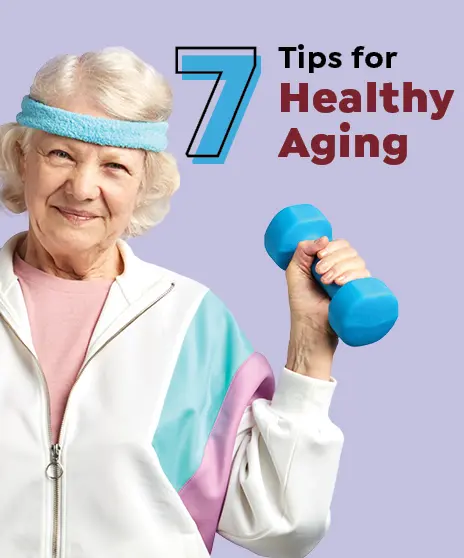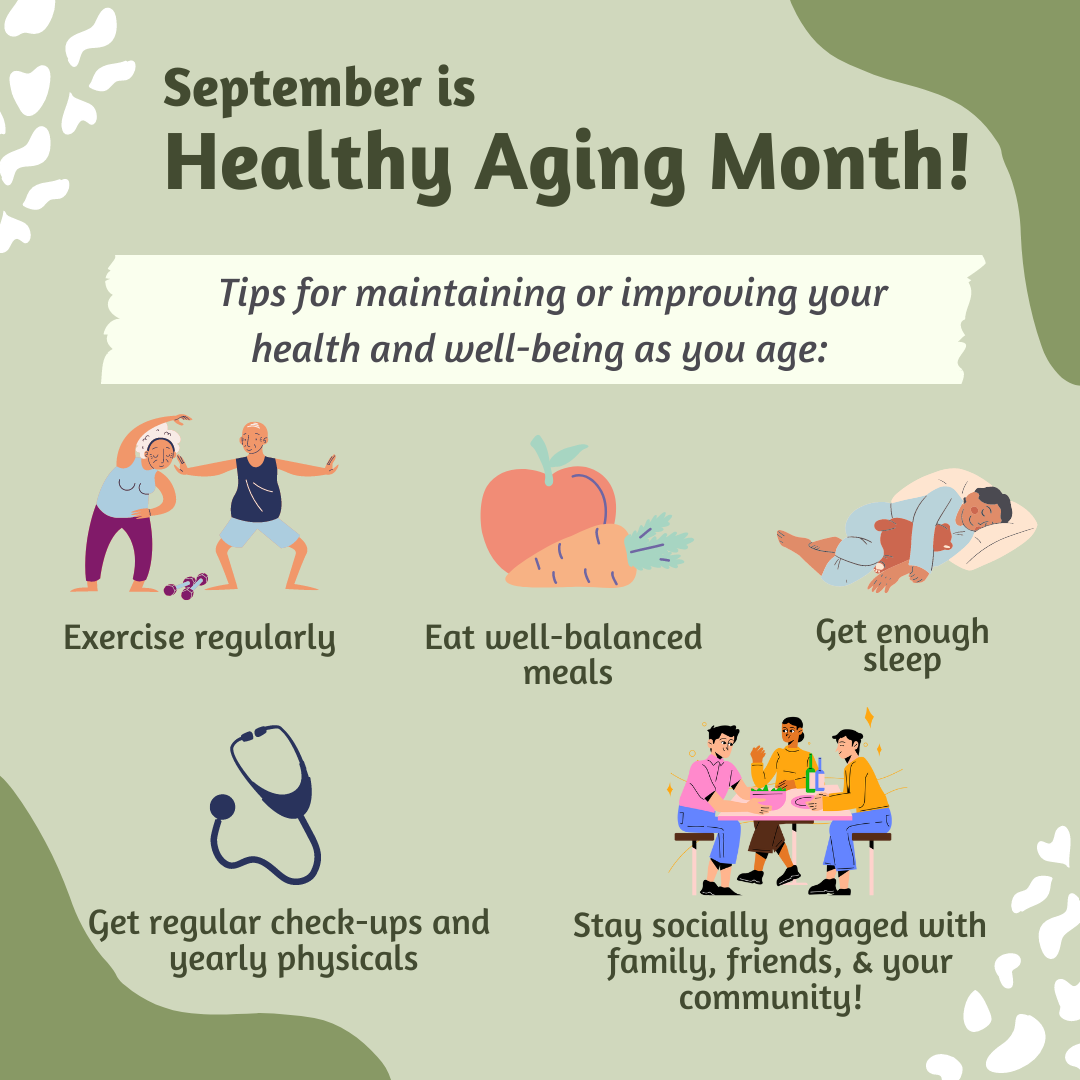Aging is a natural process that brings wisdom and experience, yet it also raises concerns about health and well-being. Recent insights from renowned celebrity doctor Ian K. Smith shed light on the vital components that contribute to healthy aging, highlighting that nutrition and social engagement are key factors in maintaining vitality as we grow older. Dr. Smith’s perspectives, derived from his extensive research and personal experiences, provide a framework for individuals striving to enhance their quality of life in their later years.
With a background that spans various domains including best-selling authorship, television appearances, and health advocacy, Dr. Smith emphasizes that healthy aging is within everyone’s reach. His approach integrates physical activity, dietary adjustments, and the development of meaningful connections as essential elements of a fulfilling life. Explore the secrets to longevity as we dissect Dr. Smith’s recommendations and iterations to age gracefully, while igniting a conversation around youthfulness that transcends age.
The Role of Nutrition in Healthy Aging
Nutrition is one of the cornerstones of maintaining overall health, especially as we age. Research often underlines the necessity of a balanced diet rich in nutrients, yet Dr. Smith’s perspective dives deeper into specific food choices that significantly impact how we age. A diet based on whole foods, fibers, and antioxidants not only helps mitigate the risks of chronic illnesses, but also promotes physical and mental well-being.

Key Nutrients for Longevity
Dr. Smith emphasizes several vital nutrients that are particularly beneficial for aging populations. For instance, omega-3 fatty acids found in fish are essential for maintaining heart health and cognitive function. Similarly, proteins play a crucial role in preserving muscle mass as we grow older. Including foods such as lean meats, beans, and legumes ensures that individuals receive adequate protein to support body functions.
Furthermore, the importance of hydration cannot be overstated. Often overlooked, water is critical for metabolic processes and can significantly affect how one feels and performs daily. Regular consumption of water, herbal teas, and hydrating foods like cucumbers and watermelon can support not only physical performance but also enhance mental clarity.
Mindful Eating Practices
In addition to making healthful food choices, Dr. Smith advocates for mindful eating practices. This concept revolves around being actively aware of one’s eating habits and choices, promoting a healthier relationship with food. By focusing on portion sizes, the quality of ingredients, and eating without distractions, individuals can better tune into their bodies and recognize their hunger and satiety signals.
The practice of mindful eating not only strengthens the body’s connection to food but can also help reduce stress and emotional eating, which are common challenges that many face during their aging journey. When combined with a nutrient-dense diet, mindful eating is a powerful tool that facilitates healthy living.
Exercise and Its Impact on Longevity
Physical activity is a well-researched factor in enhancing lifespan and quality of life. Dr. Smith emphasizes that regular exercise can prevent various health conditions, including cardiovascular disease, obesity, and even some forms of cancer. Moreover, engaging in physical activity can elevate mood, reduce feelings of anxiety and depression, and contribute to cognitive health.
Transitioning into an active lifestyle can seem daunting, yet Dr. Smith advocates for a gradual approach. Starting with just a 30-minute walk each day can yield tremendous benefits. For those living in urban environments, taking advantage of parks and walking trails can be an excellent way to embark on this journey.

Types of Exercise to Consider
Dr. Smith categorizes exercise into several types that are essential for healthy aging: aerobic, strength training, flexibility, and balance exercises. Aerobic activities, such as walking, jogging, or cycling, increase heart health and endurance. On the other hand, strength training is crucial for maintaining muscle mass and functional capacity.
Additionally, integrating balance and flexibility exercises, like yoga or tai chi, can prevent falls and enhance mobility, crucial aspects for a higher quality of life as we age. These forms of exercise not only boost physical health but also contribute to mental well-being, instilling a sense of accomplishment and joy in fitness.
Social Interaction: The Often Overlooked Component
Dr. Smith highlights that robust social engagement is a cornerstone of healthy aging. Building and maintaining relationships can greatly influence mental and emotional well-being. Engaging in conversations, sharing experiences, and simply having someone to share meals with can mitigate the feelings of loneliness often experienced by older adults.
Being socially active stimulates cognitive function and promotes psychological resilience. Volunteering or joining community groups can also provide a sense of purpose, allowing individuals to contribute positively to society while forming valuable connections.
Understanding Mental Health in Aging
The relationship between aging and mental health is profound and deserves attention. Dr. Smith stresses the importance of addressing mental wellness as a fundamental aspect of aging gracefully. Mental health challenges, such as depression and anxiety, can arise due to various factors, including isolation, health concerns, and loss.
Recognizing and addressing these mental health concerns is crucial for a holistic approach to aging. Therapy, counseling, or participating in support groups can provide the necessary support to navigate difficult emotions. Incorporating mindfulness practices, such as meditation or breathing exercises, can also alleviate stress and promote a positive mindset.

Mindfulness and Meditation
In addressing mental health, Dr. Smith advocates for practices such as mindfulness and meditation. These techniques have shown promising results in enhancing emotional well-being and reducing symptoms of anxiety and depression. Starting with short daily sessions can cultivate a sense of calm and increase present-moment awareness.
Mindfulness not only contributes to mental clarity but can also enhance physical health. By recognizing unhealthy thought patterns and stress triggers, individuals can implement proactive strategies to manage their emotional responses. The result is a dynamic approach to healthy aging that encompasses both the mind and body.
Creating Support Systems
Establishing strong support systems is essential for emotional resilience. Friends, family members, and community groups can provide emotional and practical support that promotes a sense of belonging and security. These networks can also serve as a safety net during difficult times, allowing individuals to cope better with life’s challenges.
Dr. Smith encourages embracing the notion of community; forming connections with others can ignite feelings of joy and companionship, reinforcing the idea that we are not alone in our journeys. A nurturing environment fosters well-being and stimulates growth as we navigate the complexities of aging.
Looking Ahead: A Holistic Approach to Aging Gracefully
In sum, the insights gathered from Dr. Ian K. Smith illustrate that healthy aging is multifaceted, incorporating nutrient-rich diets, regular physical activity, mental well-being, and meaningful social connections. Each element contributes to a lifestyle that supports longevity and mitigates the effects of aging.
As the market for longevity products continues to grow exponentially, it is imperative to recognize the non-negotiable factors that promote healthy aging. Being proactive in maintaining a balanced lifestyle, incorporating nutrition, exercise, socialization, and mental health practices are keys to unlocking a vibrant and fulfilling life.

Implementing Changes
Embracing the journey towards healthy aging requires implementation and consistency. Start by evaluating your current lifestyle and gradually incorporate changes. This process fosters resilience and adaptability, with each positive change reinforcing your commitment to overall well-being.
Set realistic goals and celebrate your achievements, no matter how small. Engaging in self-reflection and remaining open to growth can transform not only your physical health but also your emotional and mental landscape.
Final Thoughts
Healthy aging isn’t merely about living longer; it’s about living well. Following Dr. Smith’s insights can inspire a cultural shift toward longer, healthier lives filled with intention and purpose. The key takeaway is to prioritize nutrition, exercise, social engagement, and mental health as integral parts of your aging experience.
Source: www.scmp.com
Hi, I’m Sarah, a 30-year-old journalist with a passion for storytelling and uncovering the truth. I strive to bring important issues to light and connect with my audience through compelling narratives.



